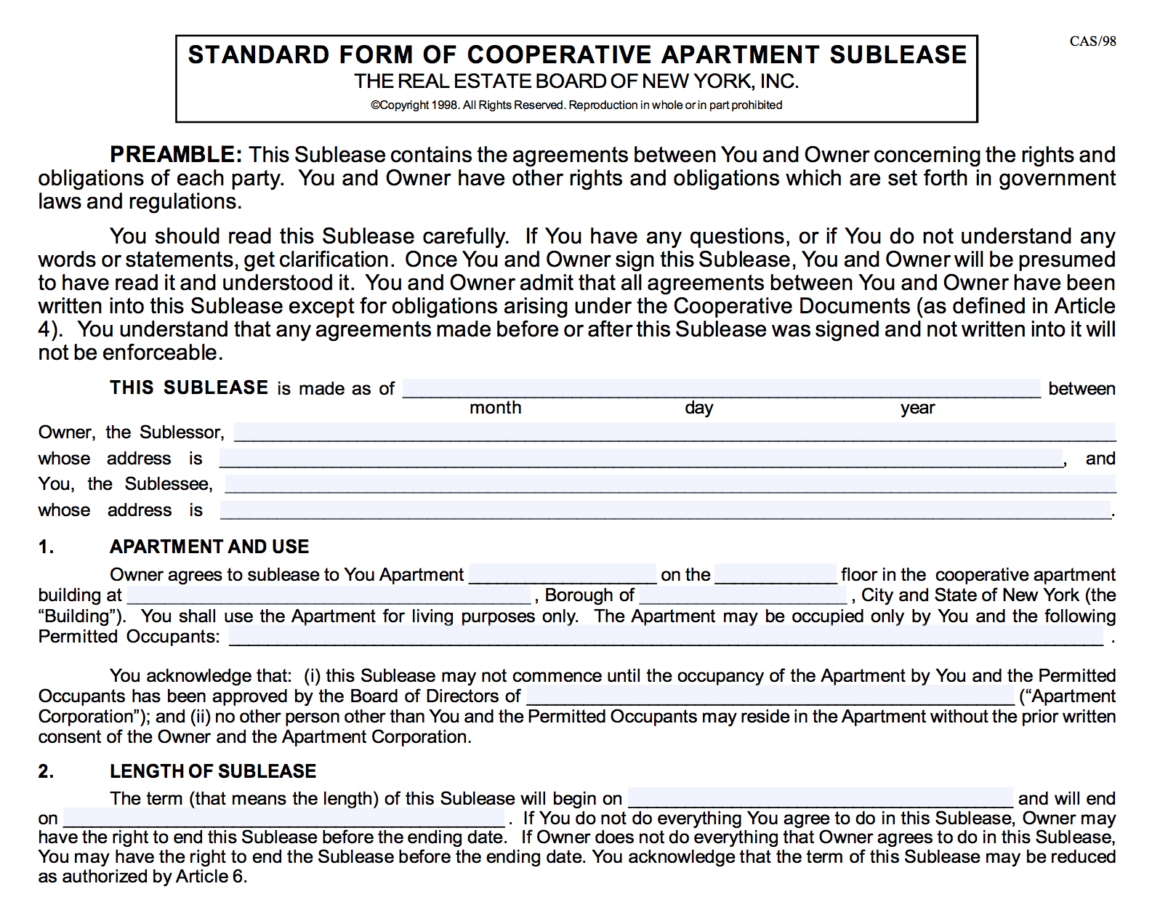Table of Contents Show
Co-op boards have house rules you need to follow, including those guiding everyday living. A co-op board is interested in protecting its investment. It is natural to have policies that involve co-op subletting rules for shareholders. These are useful, even if you do not plan to rent your apartment, since this can affect your resale value. In addition, potential buyers and banks also look at the percentage of owner-occupied units compared to rentals as a factor in their decision.
Differing Sublet PoliciesDiffering Sublet Policies
You need to check the subletting rules since these run the gamut. It ranges from forbidding all rentals to allowing them with no restrictions, allowing you to sublet freely if a very liberal board.
In between, co-op boards allow for but apply certain conditions. This is not unusual, but you must pay close attention to the details.
Common Co-op Subletting RestrictionsCommon Co-op Subletting Restrictions
Co-op boards can apply a residency time required before permitting a sublet. They do this to ensure the building does not overrun investors since renters generally do not have the same pride of ownership. Under this subletting rule, you must live in your unit for a certain period. For example, once you buy the co-op, you have to occupy the apartment for a 1 – 2 year(s) period, at a minimum. You may also have to get board approval before subletting.
Minimum and maximum subletting terms are also standard rules the board imposes. Under these conditions, the board states a minimum lease term to minimize rental turnover and discourage short-term renters. The board could also set a maximum rental period, after which the owner has to request a renewal.
Subletting rules could also limit the number of consecutive periods you can sublet. For instance, you must either move back or sell the unit after the third successive year of subletting. The board could also limit the number of subletting periods within a defined set of times.
The co-op board could ban subletting altogether but allow it in a particular instance. You would likely have to present your case to the board in these unusual circumstances.
There is a PriceThere is a Price
Co-op boards generally do not like subletting. To discourage subletting and raise building revenue, fees are typically attached to the lessor. Such fees may be imposed upfront or paid out over time.
Under a co-op’s house, rules may institute additional fees, such as an increasing percentage based on the number of years you sublet and annual renewal charges.
Remember to account for these fees when setting your monthly rental charge.
Final ThoughtsFinal Thoughts
Investors are likely to find a condo board that imposes fewer restrictions. This is undoubtedly the more straightforward route if you seek a full-time rental, although condo properties are costlier.
A co-op could work for those that are seeking occasional rentals, however. For instance, subletting your New York City co-op unit might fit the rules for those taking a temporary overseas work assignment or having a summer home.
We have given you typical subletting rules, but we implore you that investigating the best practices before purchasing the unit will save you many headaches.

